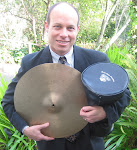Winter mornings were dark but full of life and with a hum growing louder like an orchestra’s slow crescendo. My father, his head on the pillow only moments before and eyes still half-closed put a few scoops of Folgers in the coffee maker and opened a can with a label of some smiling animal probably drawn by an Andy Warhol wannabe. The dogs, of course, were ecstatic, jumping on their hind legs like circus animals badly needing Ritalin, since they were sure they hadn’t ever tried this food before, and it was probably better than fillet mignon. It wasn’t, but I’m sure the dogs’ grating squeaks of gratitude made it to the upper spheres. The coffee machine gurgled and dripped and the bitter aroma wafted through the house. Morning smelled like plain coffee, the stuff that cost a quarter along with your eggs and toast at the local diner. Everyone was awake, eyes still closed, but aware by now. Dad then roused all the kids with four simple words: “Time to get up.” Naturally a morning person, I sprung out of bed and was dressed and eating in the kitchen in ten minutes. (Unfortunately for the rest of humanity, I didn’t discover the wonders of daily showers until adolescence.) My brother usually joined me a few minutes later. I enjoyed reading the San Francisco Chronicle while consuming my usual Life cereal and milk. Now fully awake and in good spirits, coffee in hand, Dad would regale me with questions about the weather in cities around the world. “What was the high in Buenos Aires yesterday? Guess the average temperature in New York City.” Later he became an hour-a-day devotee of the Weather Channel, and he and a few farmers complained bitterly when the cable company dropped this exciting program. He asked me and my brother these questions with such excitement and interest that you’d think he was talking about the end of the Vietnam War or the Apollo Space program, but no, it was whether it rained yesterday in Death Valley. Eventually my brother and I amused ourselves by giving purposely wrong answers and watching Dad’s horror—on this dark December day Anchorage had a high of 95 degrees and it snowed on Oahu. How could his boys be so ignorant after all the training he had given us? Completely disgusted, Dad quit asking us about the weather.
However, my father’s interest in weather was renewed in the days before the family embarked on a summer road trip. Dad would check and double check that my brother and I packed the proper gear for the coldest early morning hours. If there was a chance of a sprinkle, he told us to bring rain gear too. Despite myself, before we left I knew the probable highs and lows of every leg of our trip and the chances for rain at our destination. If my memory serves me, he was usually right—never off by more than a few degrees. He wasn’t just lucky or possessing special skills in watching birds fly. A scientist through and through, he read local weather reports, watched newscasts on television, especially the jerky storm maps (about as interesting as the natural history museums he also loved), and perhaps most critical, forecasted from his “instruments” he perched in various places in the backyard. Using three primitive tools, a thermometer manufactured around the time of the Korean War, a plastic barometer the size of a large clock that my mom found at some G-d-forsaken garage sale, and the dogs’ water dish (which measured precipitation and the night’s low by thickness of the ice) he saw patterns in our area. He successfully generalized these patterns to our trip locale after looking at the television weather maps. To this day, I trust his forecasts better than the professionals—he has a better track record.
Dad occupied himself with the logistics of the trip as well. Three different color pencils and straight edge in hand, he calculated the best route, tracing colored lines in sections over a National Automobile Club map. As he hunched over the well-illuminated table like General Patton in his war room, he let everyone know that he could not be disturbed as he was “figuring out how to get there.” Never have I seen such absolute concentration. I secretly hoped that some day I would possess this manly skill and calculate my way to and from the high Sierra Nevada mountains. Dad didn’t hold much stock in road signs, believing only in following the directions of the compass, usually assessed by the placement of the sun and the name of the highway. On the rare occasions that he lost his way, he, a combination of American Indian chief and US Army Ranger, oriented himself using celestial objects and moss on the trees.
Today I never use a map. I could never come close to the skills of the master, and I prefer depending on road signs and some inner compass to guide me. Dad’s maps, an anachronism for anyone using modern GPS systems, are no longer needed. Dad doesn’t trust the GPS though, and brightens when he proves the machine wrong. Besides, he’s a much better father than any machine, warning us adult children every year about the fog bank one block from his house.
Saturday, September 11, 2010
Subscribe to:
Comments (Atom)
Teacher by Day, Drummer by Night

Please recommend this blog to others
Popular Posts
-
Many students, grammar school to graduate school, dread writing large papers. However, if you know how to break down the task it becomes alm...
-
BF Skinner Carl Rogers This is a scholarly piece but worth the effort. Please read on... The book, Taking Sides (Noll, 2002) st...
-
I wrote this skit to illustrate how the evolution of art--its form, audience and production have changed. Form, audience, and production ha...


